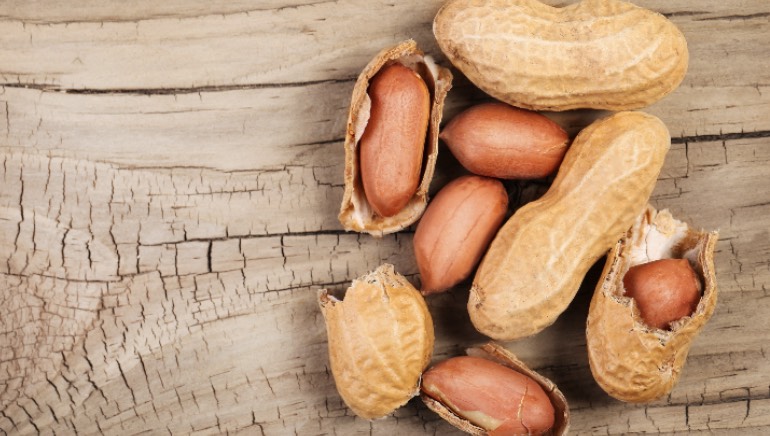Preventing peanut allergies: Find out the ideal age to introduce peanuts to your child and how starting early can help protect them.
As a parent, introducing new foods to your child can be tricky, especially when it comes to allergenic foods like peanuts. For a long time, people have thought it may be best to avoid peanuts until children get older. However, new research suggests that delaying the introduction of peanuts might actually put our children at risk.
A detailed 2025 analysis published in the journal Paediatrics examined the health records of around 120,000 children under 3 years old. The results show that babies who started eating peanut-containing foods early, usually between 4 and 6 months old, had a 43% lower risk of developing a peanut allergy compared to those who did not eat peanuts early. Dr David Hill, a lead author of the study and an allergist at the Children’s Hospital of Philadelphia, described this research as a major step for public health in food allergies.
Can food allergies cause eczema?
The perception around peanut allergies changed after the 2015 LEAP (Learning Early About Peanut Allergy), which focused on high-risk infants who had severe eczema or other food allergies. These infants were either encouraged to eat peanut products or told to avoid them. The results were impressive: by age five, the group that consumed peanuts had an 81% lower rate of peanut allergy compared to those who avoided peanuts. Follow-up studies have confirmed that early exposure to peanuts can help protect children even as they grow into later childhood and adolescence.
In the past, US food guidelines suggested that parents wait until their child is 3 years old to introduce allergenic foods, such as peanuts. These guidelines were based on the belief that avoiding these foods would lower the risk of allergies. However, this approach may have backfired, worsening the problem and leading to more cases of peanut allergy. According to the 2021 National Health Interview Survey, 5.8% of children in the US have been diagnosed with a food allergy, indicating a need for change.

How to introduce peanuts to a child?
As a parent, what does this mean for you? Here are some clear steps to take when thinking about adding peanuts to your child’s diet:
- Check developmental readiness: Make sure your baby is ready for solid foods before you start. “They should be able to sit up with support and hold their head and neck steady, usually around 4 to 6 months old,” obstetrician and gynaecologist Dr Swati Gaikwad tells Health Shots. If your baby has severe eczema or a food allergy, talk to your doctor first.
- Follow updated guidelines: The National Institutes of Health (NIH) and the American Academy of Paediatrics (AAP) now recommend giving small amounts of peanut-containing foods to babies early. This can include thinned peanut butter mixed with breast milk or formula, or peanut puffs. Watch your child for any signs of an allergic reaction.
- Start small and observe: When you introduce peanuts to your child, start with a small, diluted portion. Wait 10-20 minutes to see if there are any immediate reactions. “If your child has a high risk of allergies, like severe eczema or a history of anaphylaxis, talk to an allergist who can help with testing or a supervised introduction,” says Dr Gaikwad.
- Introduce peanuts regularly: After introducing peanuts to your child, continue to include them regularly in their diet. The LEAP trial found that eating peanuts often provides lasting protection. “Follow your healthcare provider’s advice on how often and in what forms to add peanuts to your child’s meals”, says the gynaecologist.
- Don’t blame yourself if allergies develop: Even though starting early can lower the risk, not all children will be allergy-free. “If your child has an allergy, it’s important to remember that you are not to blame,” says Dr Gaikwad. Ongoing management, support, and testing for allergies are critical.
Takeaways
- Timing matters: Introduce peanut products early (around 4 to 6 months) to reduce allergy risk.
- Consult professionals: Always talk to your paediatrician, especially if there are existing allergies or eczema.
- Start slowly: “Introduce peanuts in small amounts and monitor reactions closely”, dietitian Gauri Anand tells Health Shots.
- Keep it regular: Maintain peanut consumption in your child’s diet for lasting benefits.
- Stay informed: Keep up to date with current guidelines and research to make informed decisions.
Get latest updates on health and wellness along with Health News
Disclaimer: At Health Shots, we are committed to providing accurate, reliable, and authentic information to support your health and well-being. However, the content on this website is intended solely for informational purposes and should not be considered a substitute for professional medical advice, diagnosis, or treatment. Always consult a qualified healthcare provider for personalised advice regarding your specific medical condition or concerns.






